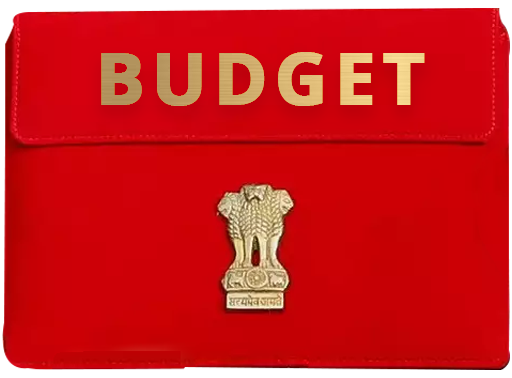- What is the Grace Period?
- Need of Grace Period
- Advantages of Having It

Daina is a content writer with a profound grasp of Insurance, Stocks, and Business domains. Her extensive 3-year experience in the insurance industry equips her with a nuanced understanding of its intricacies. Her skills extend to crafting blogs, articles, social media copies, video scripts, and website content. Her ability to simplify complex insurance concepts into reader-friendly content makes her an expert in the domain.
Reviewed By:

Priya has been in the content writing industry for over 9 years. She has been religiously following the insurance sector since the start of her career which makes her an avid insurance expert. Her forte lies in health, term, and life insurance writing, along with her knowledge of the latest developments in the insurance sector.
Updated on Jun 21, 2023 4 min read




Grace Period In Life Insurance Policy
The grace period in a life insurance policy is a vital aspect as it provides individuals an extension of time to pay their premiums. Although timely premium payments are crucial for keeping the policy active, missed payments may occasionally happen due to unexpected situations. The concept of a grace period becomes significant at this exact point in time. In this article, we will focus on exploring what is a life insurance grace period, grace periods and its importance. We will also explore the benefits of the insurance grace period to policyholders.
Meaning of Grace Period In Insurance
If you miss paying your premiums on time in life insurance policies, then you are granted some amount of additional days referred to as a grace period provided by insurers. The buffer period allows the policyholder to make premium payments without incurring any penalties or negative consequences. Various insurance companies offer multiple policies. Thus the length of the grace periods varies. The usual duration is from 15 to 30 days.
Importance of Grace Period For Life Insurance Policy
In a life insurance policy, the grace period has significant importance for multiple reasons. The following are the importance of grace periods in life insurance:
- Life's unpredictability can lead to financial difficulties, forcing policyholders to miss a premium payment. Ensuring that the coverage remains active, the policyholder is given a second chance through the grace period to make payments and have financial leeway.
- Policyholders may find it challenging to reinstate their lapsed policies and could be subject to additional medical underwriting or increased premiums. The grace period enables policyholders to rectify missed payments and reinstate their policies without facing any penalties or complications.
- The grace period guarantees that your coverage remains active regardless of any delays in premium payments. This is especially crucial if the policyholder dies during the grace period. The policy will be honoured and the beneficiaries will receive their designated death benefit by the insurance company in such cases.
- Life insurance policies frequently include several benefits and riders for policyholders such as cash value accumulation, premium waivers for disability, and critical illness benefits etc. The policyholder would forfeit these valuable benefits if their policy were to lapse because of missed premium payments. These benefits can be maintained by the policyholder if they pay any overdue amount in a specific time frame during the grace period.
To know more about life insurance plans you can visit:
Advantages of Grace Period In Life Insurance Policy
Benefits for both parties i.e. policyholder and insurance company are provided by having a grace period. Let us investigate them thoroughly.
To Policyholders
- Life insurance aims to secure policyholders and their families financially. The coverage remains secure during a temporary financial crisis due to the grace period. It stops an unforeseen lapse in coverage and allows the policyholder to fix any skipped payment after achieving financial stability.
- Policyholders can enjoy both flexibility and convenience in premium payment through the grace period. It considers that individuals can sometimes miss payment deadlines or confront unexpected obstacles. By providing an extended timeframe, the grace period removes any urgency to pay immediately and avoids penalties.
To Insurance Companies
- Insurance providers appreciate their policyholders and strive to establish lasting connections with them. In trying times, insurers provide a grace period to demonstrate their comprehension and support. Stimulating assurance, loyalty and delightful customer interactions could be achieved through this.
- When reinstating a lapsed policy, extra paperwork may be necessary to avoid administrative challenges. Possible outcomes of changes in the policyholder's health like coverage denial, necessary medical tests etc need to be checked. With grace period's help, the insurer and policyholder have a lighter administrative load to share. A quick resolution can be achieved by making the overdue payment.
What Happens If A Policyholder Dies During Grace Period
A person's beneficiaries are typically entitled to receive payouts for death benefits from their life insurance policies even if they pass away during their grace periods. After the premium payment is due, the policyholder has a specific grace period to make the payment and maintain their coverage. The insurance company is committed to honouring its policy and granting the death benefit to the rightful recipient. The policy's requirements need to be satisfied.
Depending on the insurance company and policy terms, specific details may vary. If you want to know how a particular policy deals with death during its grace period accurately, reviewing the policy documents or contacting your insurance company directly is always recommended. Making informed decisions like this can help you avoid potential issues.
Closing Comments
In order to prevent lapses in coverage, ensure uninterrupted protection, and provide financial flexibility to policyholders; life insurance policies include a crucial provision called the grace period. Valuable benefits are also preserved. The length of the grace period specified in their policy and the associated terms and conditions should be known by policyholders. Maintaining the policy's coverage requires timely premium payments. Peace of mind and financial security are offered through the grace period acting like a safety net during times when they're required.
Grace Period In Life Insurance Policy: FAQs
1. What does a life insurance grace period entail?
When it comes to life insurance, a grace period is a set amount of extra time that insurers grant to policyholders who have fallen behind on their premium payments. It enables policyholders to make payments without incurring fees or having their coverage stopped.
2. If a policyholder passes away within the grace period, what happens?
The beneficiaries of a life insurance policy are often eligible to collect the death benefit if the policyholder passes away during the grace period. As long as the conditions of the policy are met, the insurance company upholds the agreement and guarantees that the appropriate beneficiaries get the authorised rewards.
3. Can a policyholder still receive coverage even during the grace period if premium payments are not made?
The grace period is intended to provide policyholders a chance to make up late premium payments and keep their coverage in place. The insurance might expire and the coverage can end if payments are not paid within the grace period. Prioritising on-time payments is essential to guaranteeing ongoing coverage.
4. Do all kinds of life insurance plans qualify for the grace period?
The majority of conventional life insurance plans, involving term life and whole life insurance, have a grace period clause. The specific length and conditions of the grace period, however, may change based on the particular policy and insurance provider. It& 039;s crucial to read through your policy documents to find out the details of the grace period clause.
5. During the grace period, are policyholders permitted to make partial payments?
In most cases, the grace period enables policyholders to pay the entire overdue premium payment without incurring penalties. Partial payments made within the grace period might not be enough to keep coverage in place. To guarantee that the insurance stays in effect and that coverage is not suspended, it is advised that the entire payment be made during the grace period.
Life Insurance Companies
Share your Valuable Feedback
4.6
Rated by 855 customers
Was the Information Helpful?
Select Your Rating
We would like to hear from you
Let us know about your experience or any feedback that might help us serve you better in future.


Written By: Daina Mathew
Daina is a content writer with a profound grasp of Insurance, Stocks, and Business domains. Her extensive 3-year experience in the insurance industry equips her with a nuanced understanding of its intricacies. Her skills extend to crafting blogs, articles, social media copies, video scripts, and website content. Her ability to simplify complex insurance concepts into reader-friendly content makes her an expert in the domain.






 Reviewed By: Anchita Bhattacharyya
Reviewed By: Anchita Bhattacharyya
















Do you have any thoughts you’d like to share?